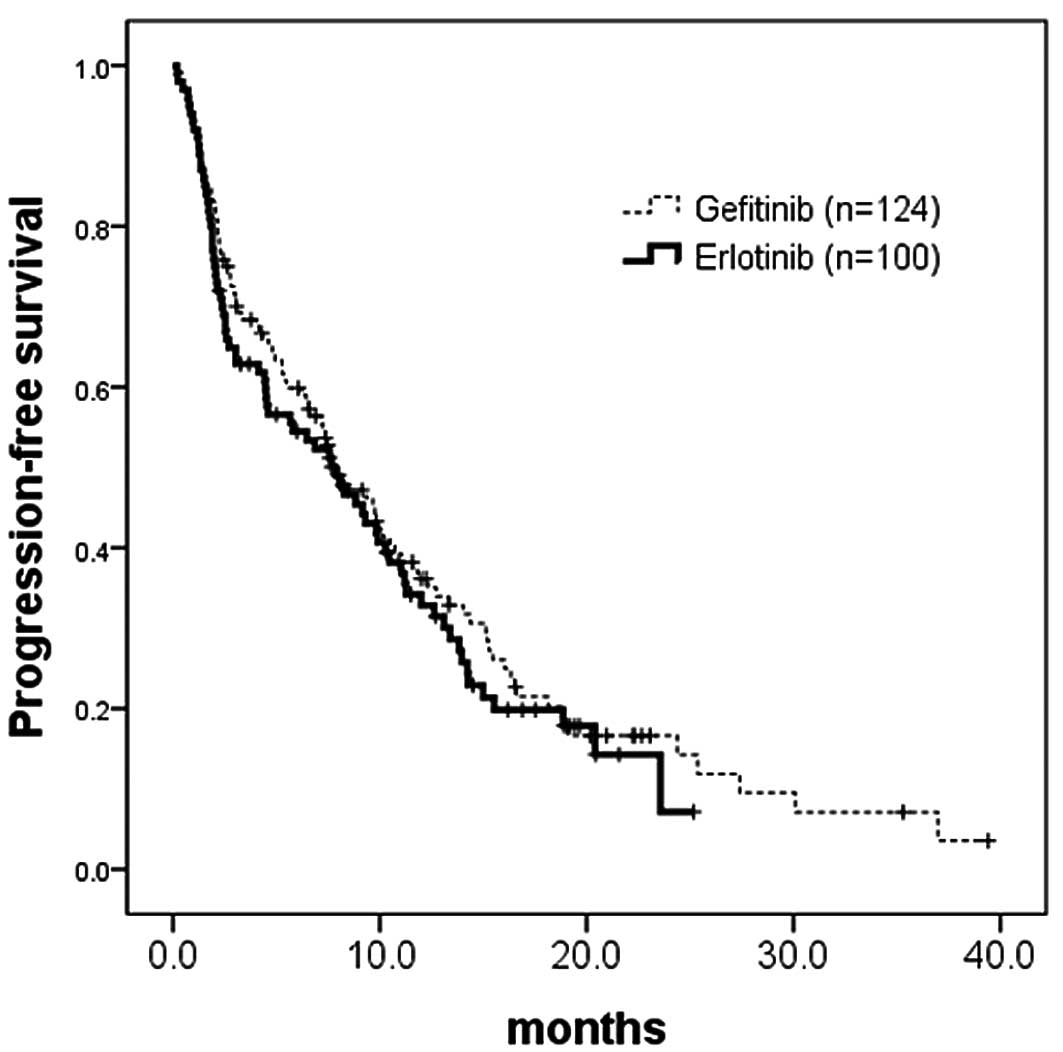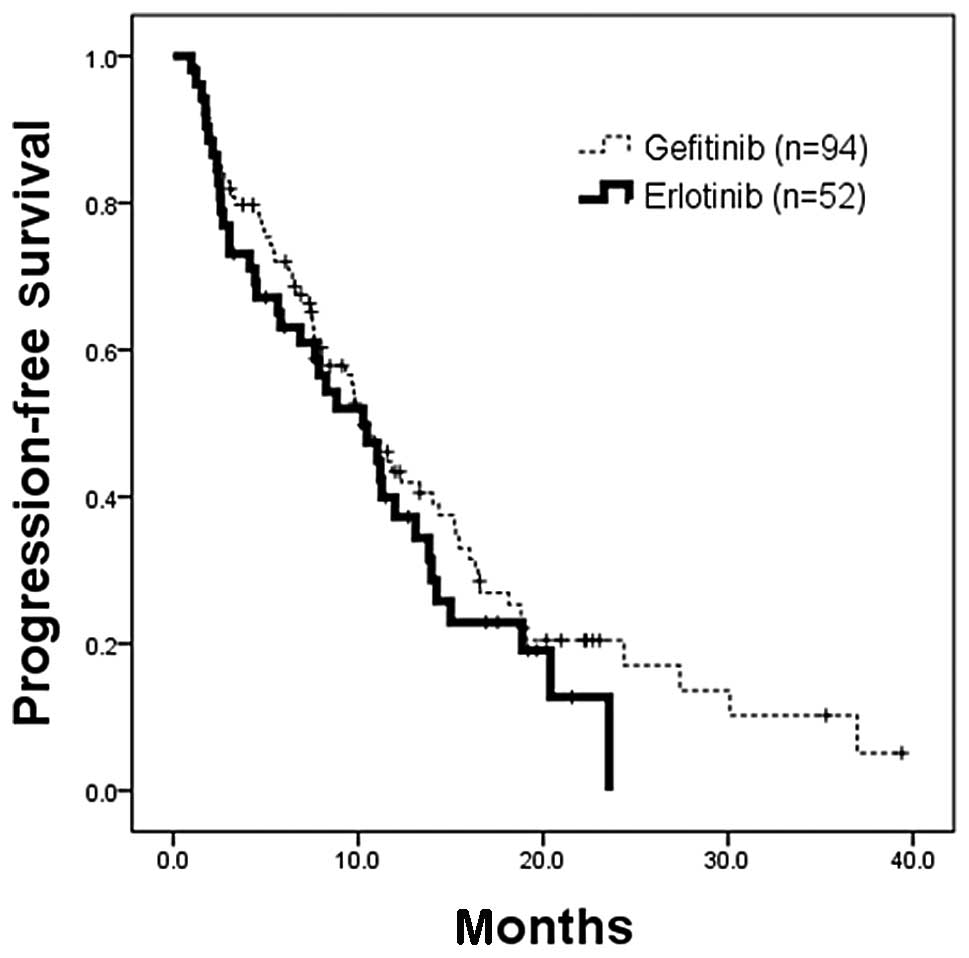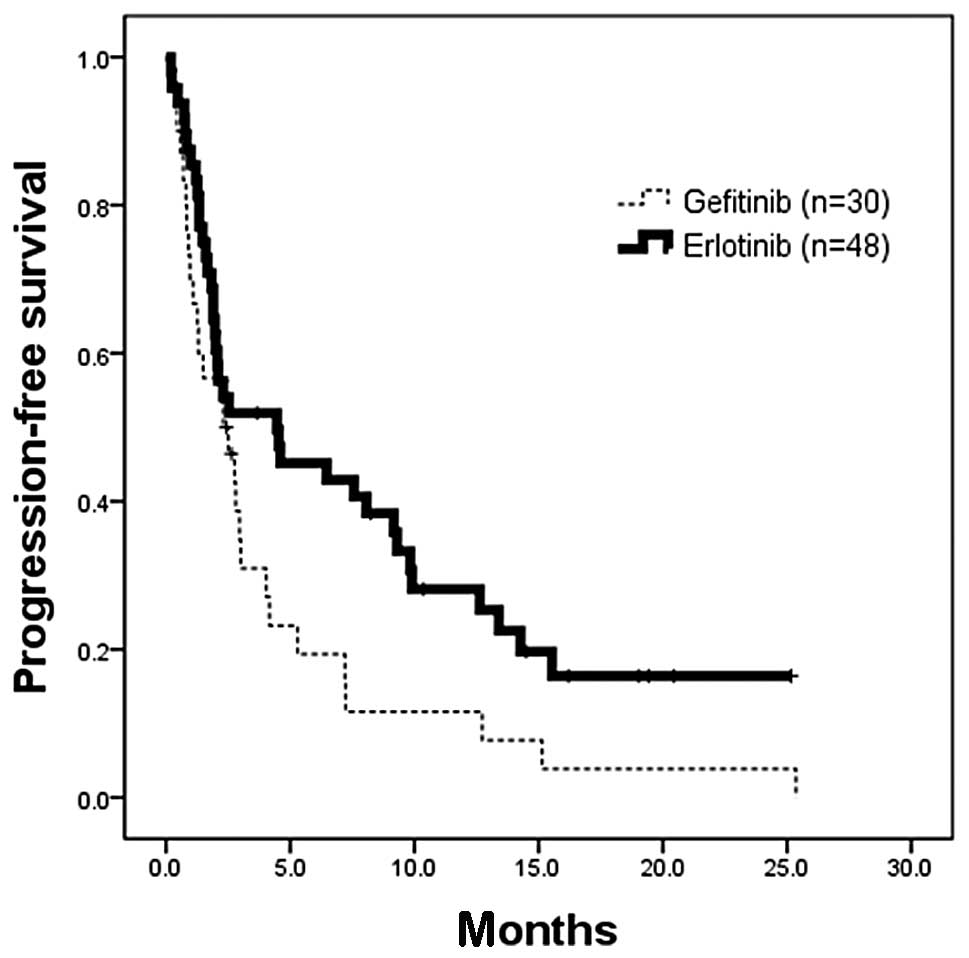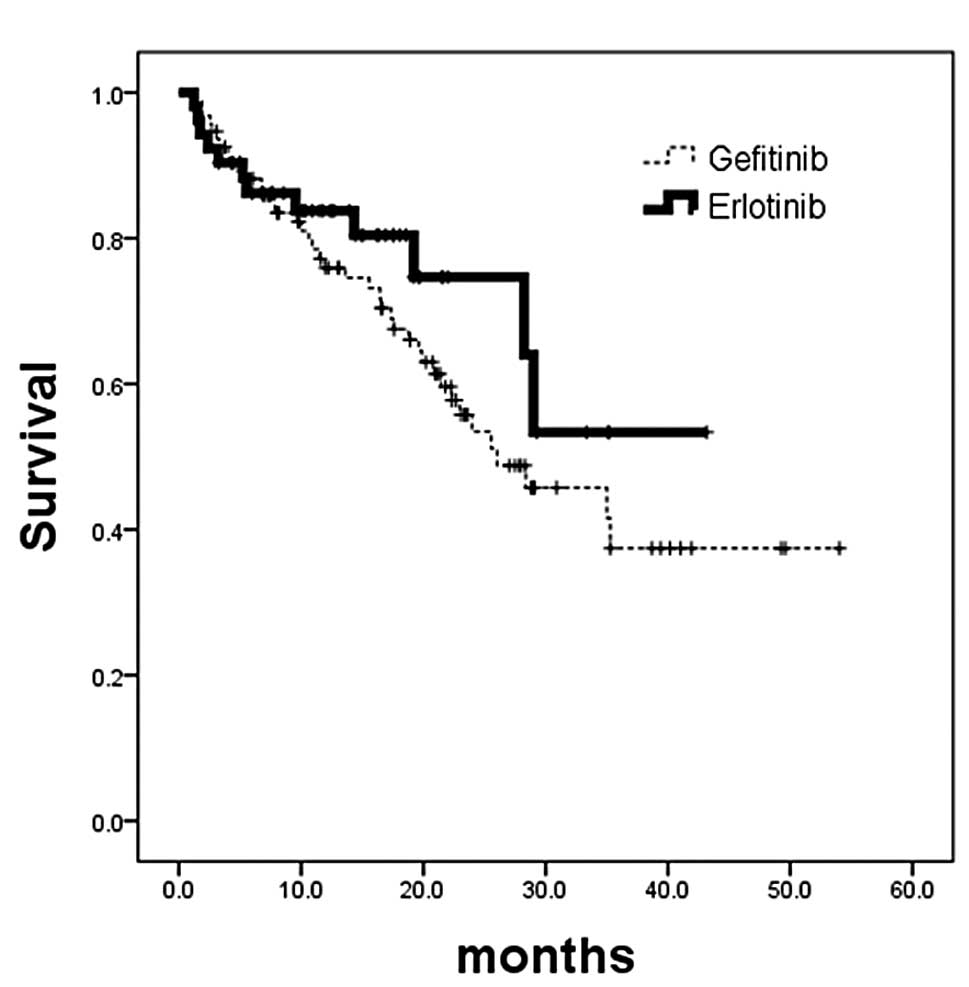Spandidos Publications style
Wu W, Chen Y, Tsai C, Shih J, Chiu C, Chou KT, Lai S, Wu C, Luo Y, Huang CY, Huang CY, et al: Erlotinib has better efficacy than gefitinib in adenocarcinoma patients without EGFR-activating mutations, but similar efficacy in patients with EGFR-activating mutations. Exp Ther Med 3: 207-213, 2012.
APA
Wu, W., Chen, Y., Tsai, C., Shih, J., Chiu, C., Chou, K. ... Whang-Peng, J. (2012). Erlotinib has better efficacy than gefitinib in adenocarcinoma patients without EGFR-activating mutations, but similar efficacy in patients with EGFR-activating mutations. Experimental and Therapeutic Medicine, 3, 207-213. https://doi.org/10.3892/etm.2011.383
MLA
Wu, W., Chen, Y., Tsai, C., Shih, J., Chiu, C., Chou, K., Lai, S., Wu, C., Luo, Y., Huang, C., Lee, Y., Perng, R., Whang-Peng, J."Erlotinib has better efficacy than gefitinib in adenocarcinoma patients without EGFR-activating mutations, but similar efficacy in patients with EGFR-activating mutations". Experimental and Therapeutic Medicine 3.2 (2012): 207-213.
Chicago
Wu, W., Chen, Y., Tsai, C., Shih, J., Chiu, C., Chou, K., Lai, S., Wu, C., Luo, Y., Huang, C., Lee, Y., Perng, R., Whang-Peng, J."Erlotinib has better efficacy than gefitinib in adenocarcinoma patients without EGFR-activating mutations, but similar efficacy in patients with EGFR-activating mutations". Experimental and Therapeutic Medicine 3, no. 2 (2012): 207-213. https://doi.org/10.3892/etm.2011.383


















